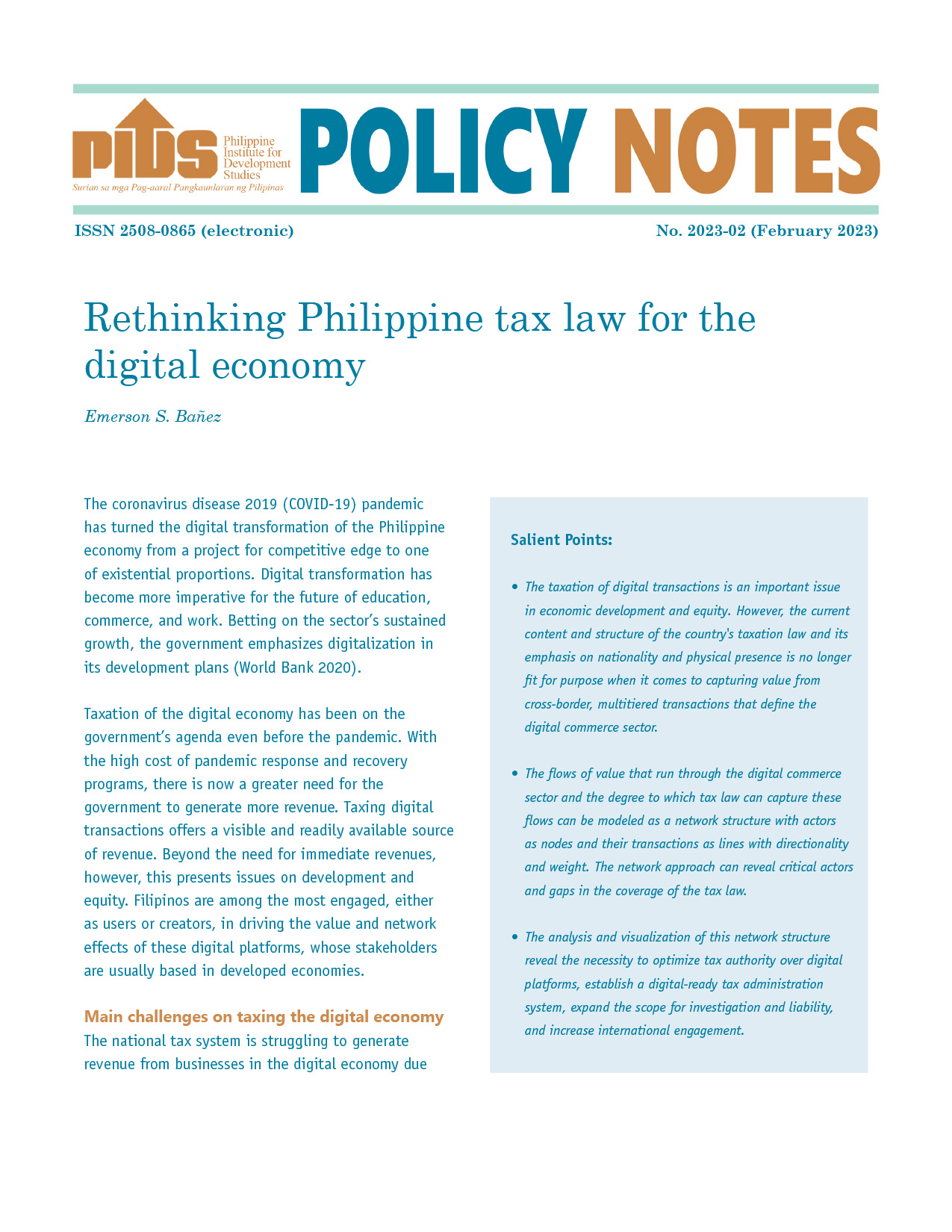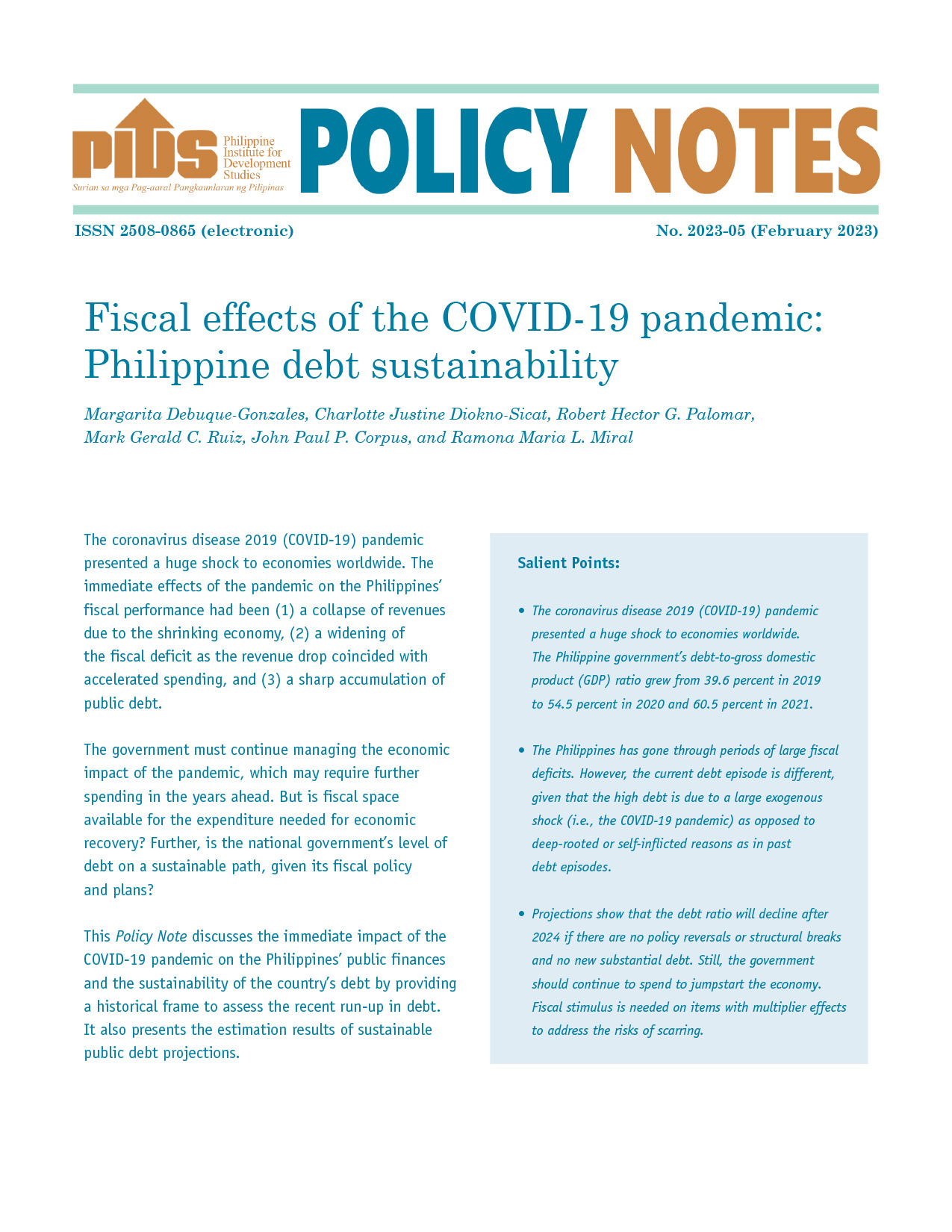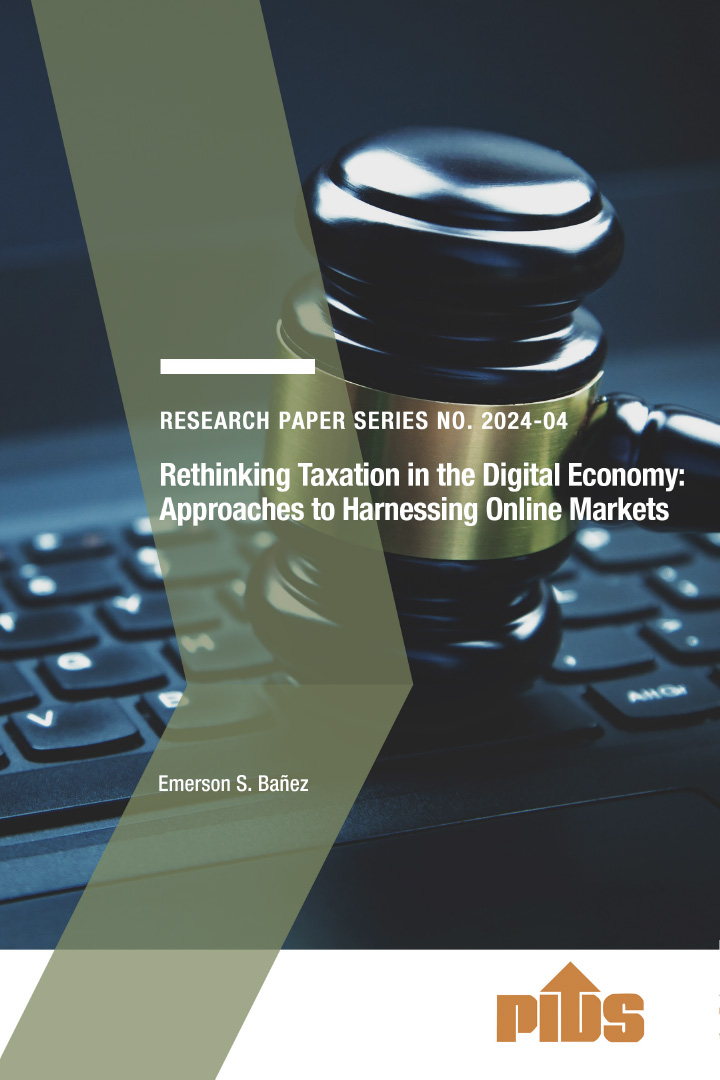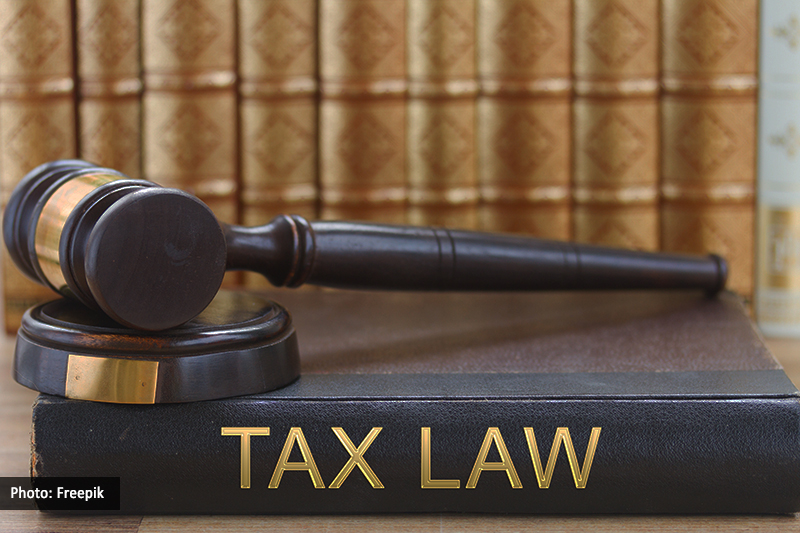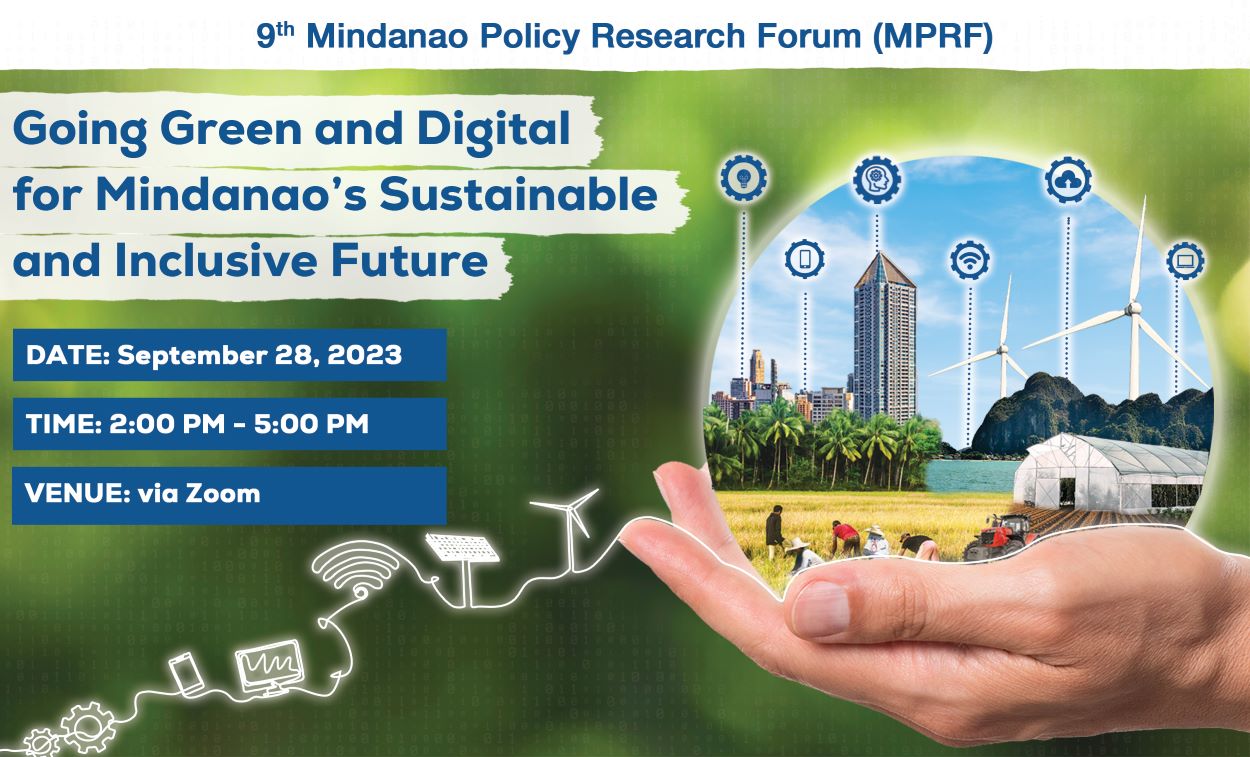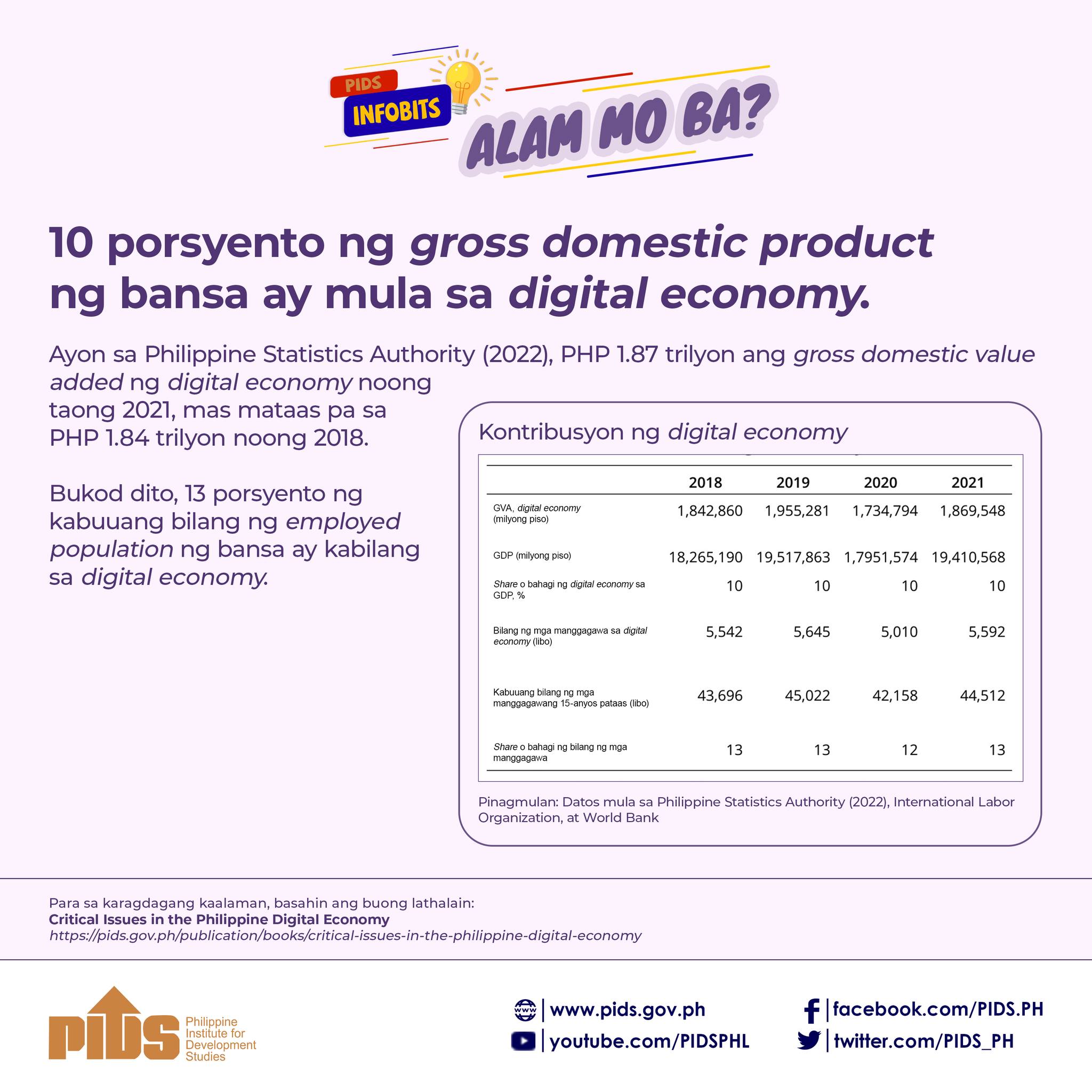Tax legislations must be updated to include virtual realities, as the current tax rules are anchored on the traditional way of doing business and may not always be applicable to the digital economy, an official of the Bureau of Internal Revenue (BIR) said.
Marissa Cabreros, BIR deputy commissioner, said during a webinar organized by the Philippine Institute for Development Studies last Thursday the BIR has always been consistent with its stand that the tax consequence of the migration of businesses into digital format should be tax neutral.
“Meaning, whatever is taxation (on the) traditional brick and mortar mode should be the same under digital virtual mode. But in reality, this may be a challenge to implement. It’s easier said than done,” Cabreros said.
She said the BIR recognizes the fact that a digital economy and the digitalization of the economy gave birth to new types of business entities and new business models, thus challenging the application with the current provisions of the tax code, which has been anchored and designed under a brick and mortar or traditional way of doing business transaction and reporting.
“The reality is, not all existing rules under the brick-and-mortar mode is applicable in the current digital economy… Current tax legislations are anchored on physical dimensions of transaction, and must be updated to admit virtual realities,” Cabreros said.
“The taxation of services has always been anchored on where services were performed. But a lot of global jurisdiction has shifted already to consumption, tracking and tapping on consumption, because if you still tap it on where services performed, services can be performed anywhere and everywhere,” she added.
Cabreros noted the importance of addressing taxation in the digital economy, not with haste, but following a well-thought of strategy and policy package.
“It is a desire and objective of the government to capture tax revenues from these digitalized transactions, but the government also wants the digital economy to thrive,” she said.
“And the government too would like to take advantage with the benefits of having digitalized transactions, aligned with the saying that we should proceed with caution, else, we kill the goose that lays the golden egg,” she added.
There is a recognized challenge to properly define and create an appropriate landscape for digital economy for the Philippines, she pointed out.
“The government and the regulators, must have a good grasp of the entire ecosystem, making up not just the digital economy, but also a broader scope of digitized economy.
Appropriate regulatory and legal framework should be in place, not just copied from other countries, but that is studied, that which is applicable and feasible for the Philippine setting,” Cabreros said.
According to Cabreros, roles and responsibilities of concerned government agencies should be properly defined, if not revisited.
“This is not a challenge for BIR or the Bureau of Customs alone. The DTI (Department of Trade and Industry), NTC (National Telecommunications Commission), and especially the DICT (Department of Information and Communications Technology) will have, or should have, a significant role with the… growth of the digital economy and the transition towards digitalized economy,” she said.

